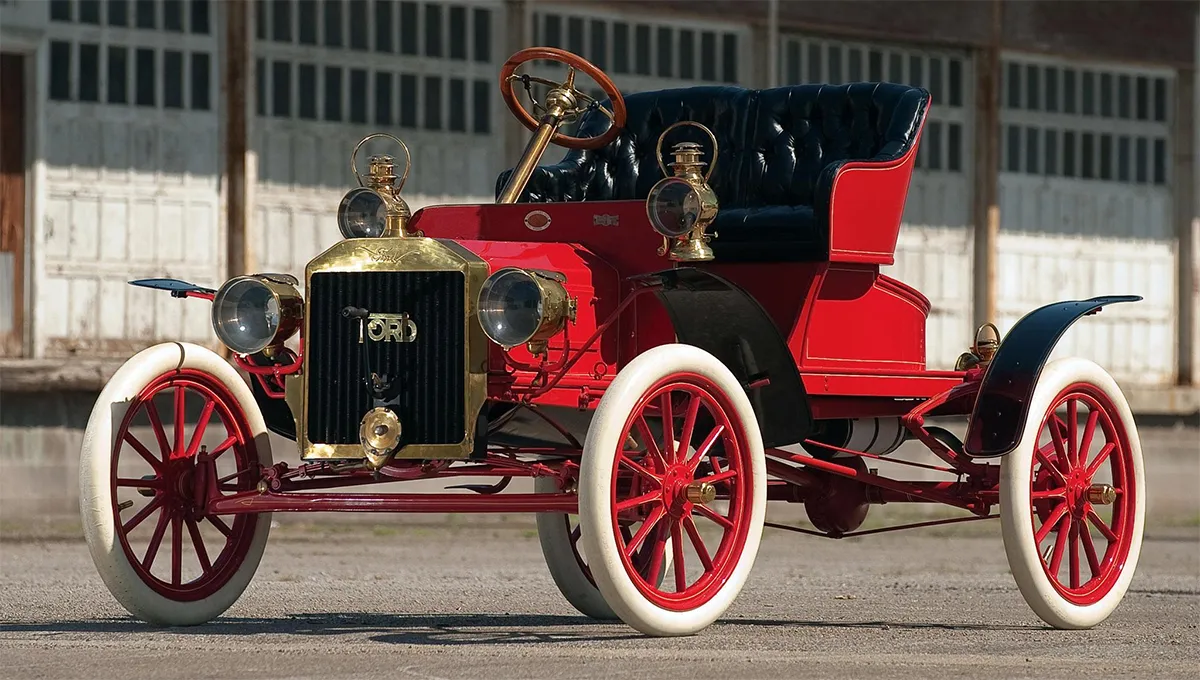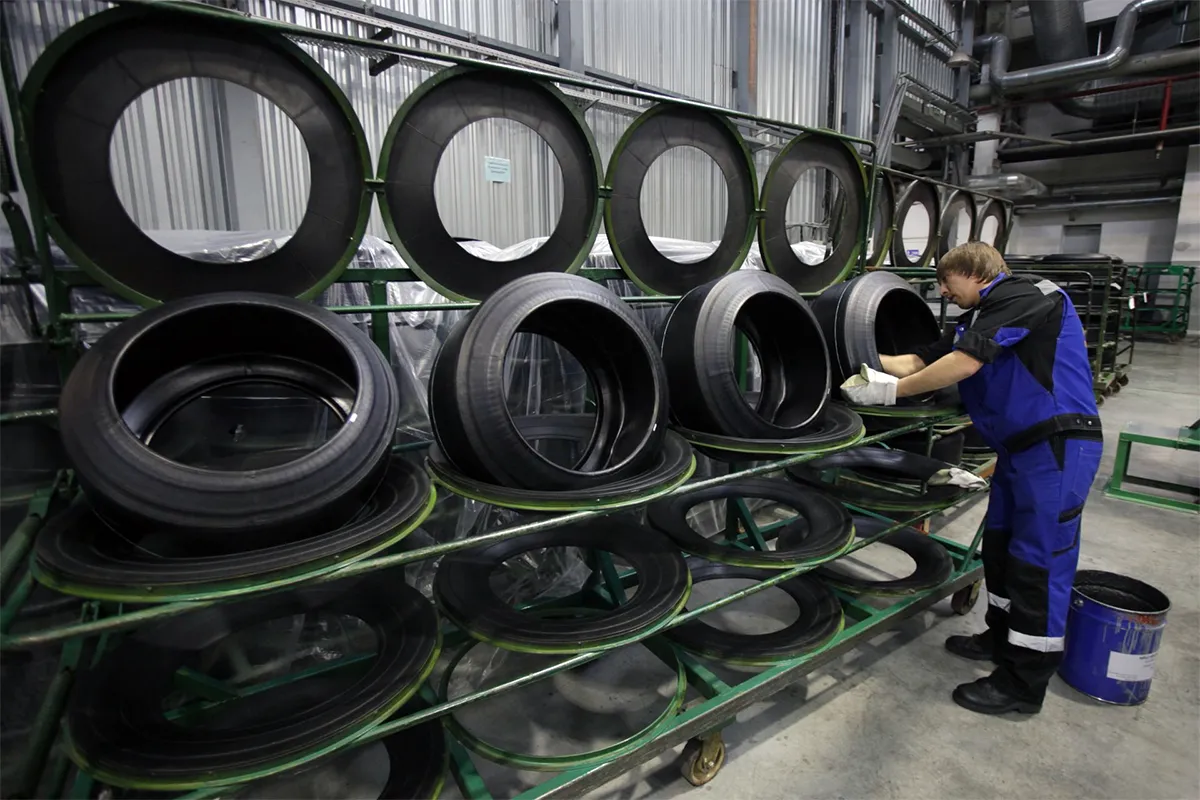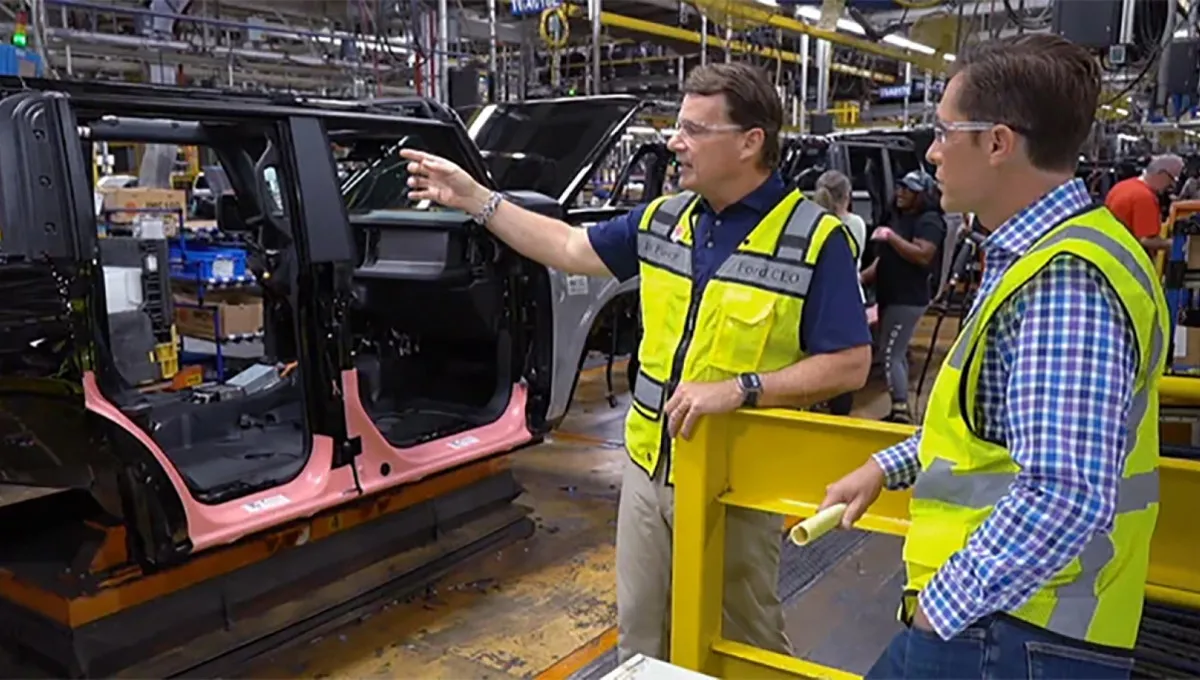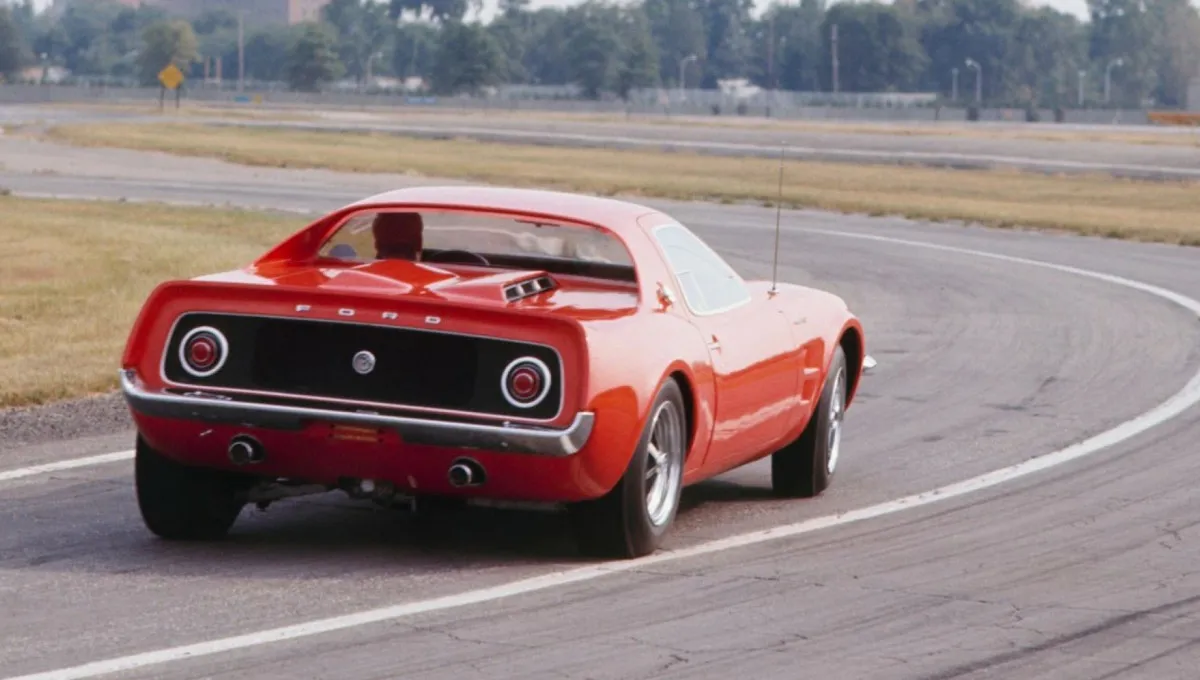Why are car tires black? After all, rubber is originally white!
Black tires have become the standard, but the very first rubber tires were white. How did white become black?

Have you ever noticed that almost all tires are black? And while it seems practical (dirt is less visible), the reason is actually much more interesting.
From white to black: how tires changed color
Initially, tires were made from natural rubber, and they were… white! Yes, imagine a car on snow-white wheels. But such tires had a major disadvantage — they wore out quickly.

Manufacturers were looking for a way to make them more durable, and the solution was found in carbon black (or simply put, soot).
This black powder, derived from petroleum products, not only colors the rubber but also makes it much stronger. Without it, tires would wear out after a few thousand kilometers, but with it, they last for years.
What else does carbon do?

Protection from the sun — UV rays destroy rubber, and black color blocks harmful rays.
Conductivity — eliminates static electricity that could shock you when exiting the car.
Heat resistance — in summer, tires won't melt on the hot asphalt.
What about colored tires?

There were such! In the 1930s, Ford produced tires with white sidewalls — whitewalls. They looked stylish but got dirty quickly and wore out. Today, colored tires are more of an exotic, custom-made for retro cars or tuning.
What else are tires made of?
A modern tire — it's not just rubber with carbon black. It contains:
- Silica (improves traction on wet roads).
- Synthetic rubbers (make the tire more elastic).
- Reinforcing materials (like steel cords for strength).

According to Auto30, the black color of tires is not a coincidence but the result of engineering calculations. Without carbon black, we would have to change tires every season. So next time, looking at your car's wheels, remember: their color is not just design, but a real technological breakthrough.
You may also be interested in the news:

Hidden Threat in Your Wheels: Tire Pressure Sensors Can Be Used to Track Drivers
Every TPMS unit broadcasts a fixed, unique identifier via radio signals.

Gotion’s Jinshi Batteries Promise 620 Miles of Range and 10-Minute Charging
Gotion High-Tech launches a 2 GWh solid-state battery production line.

Ford Motor Company CEO Tore Down a Tesla Model 3 and a Chinese EV — and Was Stunned by What He Found
Jim Farley says the experience forced him to rethink Ford’s entire electric vehicle strategy.

Dodge Caliber: A Symbol of Change in the Auto Industry During the 2008 Crisis
Why the Dodge Caliber became a reflection of the late-2000s global auto crisis — and what it means for today’s market.

American Muscle: Prototypes That Never Made It to the Streets
In the 1960s, Detroit built radical V8-powered dream machines that thrilled engineers—but proved too bold, expensive, or risky for mass production.